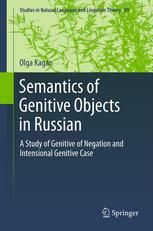

Most ebook files are in PDF format, so you can easily read them using various software such as Foxit Reader or directly on the Google Chrome browser.
Some ebook files are released by publishers in other formats such as .awz, .mobi, .epub, .fb2, etc. You may need to install specific software to read these formats on mobile/PC, such as Calibre.
Please read the tutorial at this link: https://ebookbell.com/faq
We offer FREE conversion to the popular formats you request; however, this may take some time. Therefore, right after payment, please email us, and we will try to provide the service as quickly as possible.
For some exceptional file formats or broken links (if any), please refrain from opening any disputes. Instead, email us first, and we will try to assist within a maximum of 6 hours.
EbookBell Team

0.0
0 reviewsThe genitive/accusative opposition in Slavic languages is a decades-old linguistic conundrum. Shedding new light on this perplexing object-case alternation in Russian, this volume analyzes two variants of genitive objects that alternate with accusative complements—the genitive of negation and the intensional genitive. The author contends that these variants are manifestations of the same phenomenon, and thus require an integrated analysis. Further, that the choice of case is sensitive to factors that fuse semantics and pragmatics, and that the genitive case is assigned to objects denoting properties at the same time as they lack commitment to existence. Kagan’s subtle analysis accounts for the complex relations between case-marking and other properties, such as definiteness, specificity, number and aspect. It also reveals a correlation between the genitive case and the subjunctive mood, and relates her overarching subject matter to other instances of differential object-marking.